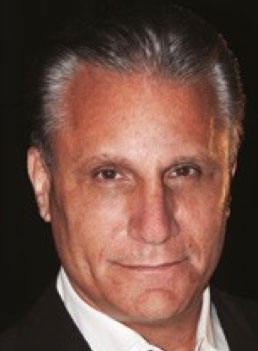What Happens When You Can't Transfer Money Electronically

- Stephen Harkey, Chief Marketing Officer at ViViPAY
- 17.05.2019 08:45 am Electronic Funds Transfer , Stephen Harkey is the Chief Marketing Officer of ViViPAY, a subsidiary of ViVi Holdings, a U.S.-based "FinTech" financial technology company that has developed a complete ecosystem of financial solutions and is committed to the digital inclusion of basic banking services for the entire population. It aggregates the branches of technology, telecommunications and payment processing in one cohesive, intuitive platform that uses "AI" Artificial Intelligence and Private Blockchain technology to guarantee security.
There are still millions of people who do not have access to a bank account. Some don’t qualify for one, while others can’t or don’t wish to pay the fees that are associated with commercial banking. To them, these fees are significant.
According to media sources, there are believed to be an estimated 1.7 billion adults across the globe who do not presently enjoy access to conventional financial services. This equates to 31% of the adult population who are not currently leveraging financial services, products and benefits from a traditional bank account.
This means that 31% of the world’s adult population cannot borrow money, formally save funds, or invest finances. They are simply not able to gain access to the global money system that allows for economic liberation. What’s worse, because of their limited means to financial services, their current options are very predatory in nature when they do need access to cash or funds.
The Venmo Effect
One of these financial services is commonplace today: electronic funds transfer. Applications such as Venmo have become quite popular. According to The Wall Street Journal, more than 40 million individuals used Venmo in the past 12 months. Venmo recently reported sharp growth in its overall volume, with total payments rising 73% to $21.3 billion in the first three months of 2019.
A large majority of Venmo payments consist of money transfers between two people, but in order to use the service a person must have their profile attached to a traditional bank account.
This is problematic for the millions of unbanked individuals across the U.S. and throughout the world. They are left with other means of funds transfer and bill payment since a recent industry survey indicated that 80% of unbanked are unable to use applications such as Venmo. What’s more, many people (41.4%) said they use cash to pay bills, the second-leading method (28.5%) was listed as bank money orders to pay bills.
Another 48% of unbanked and underbanked said they pay up to $50 in check cashing fees, which can total $250 or more if cashing five checks in a given month.
Unbanked and underbanked does not mean that they are poor, yet they do not meet the minimum requirement for opening an account, nor do they have any credit history and assets to support a loan. Usually, these individuals have been serviced through financial products such as microfinance, vouchers, prepaid or stored-value cards, and rechargeable cards – none of which offer the same opportunities for a full financial experience.
FinTech Possibilities
Innovative FinTech solutions in 2019 may help. Suppliers of FinTech solutions are poised to offer a complete SAAS-based financial ecosystem that provides virtual bank-like services to the unbanked and underbanked of the world without the need for an established bank account. These providers can even build these offerings around digital wallet apps that are accessible through either mobile phone or computer, and allow users to make online purchases, as well as to transfer money, pay bills, and deposit money, all without requiring a traditional bank account or credit check.
These can also be linked directly to a credit card, allowing customers the ability to spend their money online and with retailers worldwide.
We clearly live in an age where technology is evolving every day, right before our eyes. With talk of driverless cars and computers that can chat online and seem so life-like, technology continues to push us forward.
This technological evolution is also very present in the financial, banking and payments world, where retailers – both online and brick and mortar are beginning to allow consumers to make payments without the option to use cash. With the right FinTech options open to everyone, all consumers, including unbanked and underbanked, will operate on a similar playing field and enjoy life more equally.





















